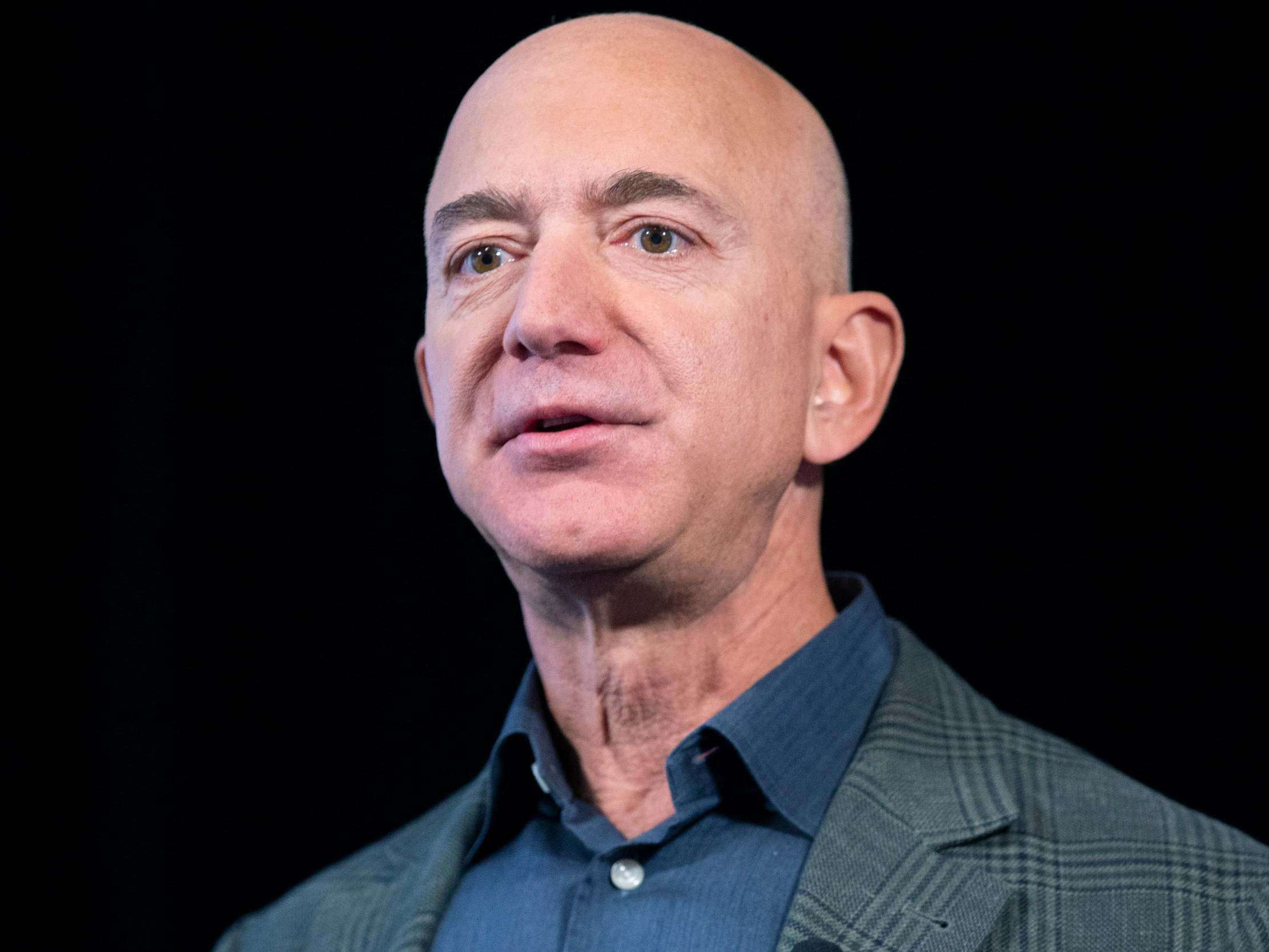The world's richest man, whose company boasts a staggeringly large carbon footprint, has announced a $10 billion fund to fight climate change. Yesterday Jeff Bezos, founder of Amazon, took to Instagram to announce that We Can Save Earth.
Thank you, Bezos-the-Beneficent. I’m thrilled to hear we can rescue the planet, particularly when it is proclaimed by a man whose company’s carbon footprint totals roughly that of a small country.
And there is nothing at all to be wary about in Bezos’ Damascene conversion, which comes after many years of failing to publish Amazon’s environmental impact reports, as other companies do. It is surely pure coincidence that Bezos is announcing this less than a month after a group of courageous employees defied the threat of dismissal to speak out against Amazon’s alarmingly high emissions and links to the oil and gas industry too.
Download the new Independent Premium app Sharing the full story, not just the headlines
Now, I know what you might be thinking. Amazon is the present and future, the online shopping portal, slayer of Main Street, gobbling up retail chains and newspapers alike. I use it; you use it. So what chance do we have if Amazon doesn’t go green? Someone’s going to be a billionaire, so why not a lord of the manner who sprinkles drippings? Something is better than nothing, right?
The problem is that all too often when it comes to billionaire philanthropy, the something over here facilitates and justifies a gaping nothing over there. Frequently, writing these charity checks serves as a blank check for bad behavior, like eye-watering tax avoidance (quite literally blank checks).
Indeed, it has been confirmed by a spokesperson that this $10 billion Bezos Earth Fund will come from Bezos’ personal wealth, and while his personal tax filings aren’t publicly available, you could bet your bottom dollar it’ll bring his own tax bill down considerably. It is no small irony that the CEO of Amazon, a company that paid zero federal income tax in 2018 despite profits of $11.2 billion, is leaving it up to his taxed employees to pay for the Environmental Protection Agency, while we all coo at his noblesse oblige.
In announcing his new fund, Bezos expressed the wish to work with “scientists, activists and NGOs”. Again, this is positive if it leads to environmental breakthroughs. But who among the not-hopelessly-naïve wouldn’t note that he now wields considerable influence over the narrative and direction of activism travel, mere weeks after his company threatened to fire employees for criticizing the company’s links to the oil and gas industry?
Indeed, a relative newcomer to philanthropy, Jeff Bezos already has an impressive record of starting fires and then cosplaying as a firefighter. Last year, he ostentatiously donated to help Seattle homeless charities after lobbying aggressively to kill a local tax designed to address the city’s rough sleeping crisis. And by “lobbying,” read: Amazon stopped construction on its new premises and alluded to the possibility of moving all its staff somewhere else. Petrified, Seattle politicians axed the tax.
The company also has a shameful record on employment conditions for its warehouse staff up until recently, with reports of terrified employees urinating in bottles to meet punishing time targets and other horror stories emerging.
Thankfully, Amazon has been responding to criticisms. But it was not out of the goodness of his heart that Bezos recently raised employee wages. It was because of sustained pressure from activists and journalists. So it is folly to fawn too quickly when tycoons take their tax breaks.
Of course, some call such criticisms the politics of envy, as if those who pay their taxes should be grateful for drippings from those who don’t. But, as many studies have shown, poorer people tend to be more generous than the richest, giving a significantly greater proportion of their money to good causes.
Billionaire philanthropists also tend to believe that they can create change better and faster than the creaky wheels of government. In some but not all instances this is probably true, which is why some charitable giving, along with tax-paying, would be welcome. After all, it’s what most Americans already do.
Any donation to help fight climate change is welcome. But such "gifts" all too often serve as a pacifier pushed in the mouths of those who'd call for tax justice and green legislation — two things we can't survive the climate crisis without.
So don’t clap Bezos — tax Bezos.

krugerlive on February 19th, 2020 at 17:01 UTC »
1) I live in Seattle and what you’re implying isn’t accurate. The majority of voters here were against the head tax for homelessness because it was extremely poorly conceived and pushed through by a subset of city council members without public input. They correctly listened to the majority of citizens and pulled it. It wasn’t Amazon. It was a very bad tax plan.
2) Amazon is working to be carbon neutral by 2040, which is very difficult for a company that relies on shipping. I’d rather encourage them than bash them.
3) Giving $10B to climate change should be welcomed. I don’t think any of us here really have a place from which we can legitimately complain about that. This is a good thing, it should be encouraged so more do it, not bashed so we can feel a false sense of superiority.
D1Foley on February 19th, 2020 at 13:15 UTC »
Does anyone have more information on this? The articles doesn't go into any detail at all.
markesss on February 19th, 2020 at 13:12 UTC »
Many companies do this kind of stuff. Shell for example has a big share on renewable energies while heavily lobbying against them. They play both sides of the game to make the max amount of profit.